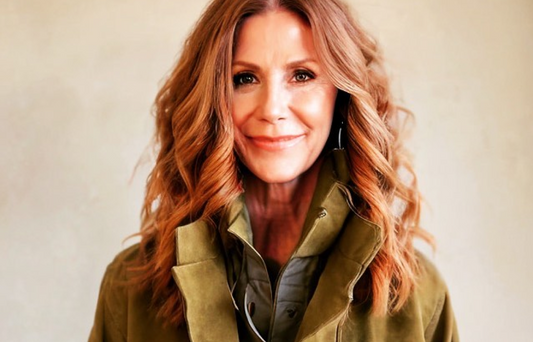
Taking a breather from work this weekend? Take a second to actually feel yourself breathe.
“Your breath is a messenger of what's going on with your body on a micro level,” says mental health expert Kate Pieri, a somatic coach and breathwork facilitator. “When you start paying more attention to your breath, you can use it as a checkpoint for your physical, mental and emotional state.”
Pieri became a certified breathwork coach after serving as a court-appointed therapist, and seeing how stress and trauma affect the full body. “I was amazed at how, no matter what you’re dealing with, the simple act of conscious breathing can become a toolkit for your own healing.”
Here’s how Kate’s journey to breathwork began, how the practice has changed other areas of her life, and what you need to know before taking a class vs. watching a YouTube video instead. (Both can be great!)
You’re a somatic coach. What does that mean?
Somatic means mind, body, and spirit. Essentially, it’s getting out of using just your head to solve mental health problems and understanding that wellness and health are much more holistic.
How did you start?
I’m a former mental health counselor. I worked for the Cook County Sheriff's Office, so I worked with a lot of folks that were going through crisis and trauma. It felt like I was always hitting a wall. Things happen in our lives that are really hard to think about, but even if we ignore them, our bodies can feel that we’re trying to ignore something. Somatic therapy really helps us get into our bodies, and breathwork is a somatic practice.
“Breathwork” feels like the new yoga—it’s everywhere. But what is it?
It’s such an interesting space to be in, because it can be so many different things. And I think that's part of the challenge, and why it might intimidate people… But at its heart, breathwork is just connecting to your breath, and then consciously breathing to help your body make a change. There’s breathwork for centering, grounding, calming, energizing, and then there's more breathwork geared to an emotional release. But at the heart of it, it’s simply the connection between your breath and your body.
How can breathwork help you?
So many ways. It can help with anxiety, with stress, when you need to sleep better, when you need to focus or feel more energized… There are also practices that use breathwork to help process and move through an emotional block or event.
How did you get into it?
Before the pandemic, I was a devout yogi. I loved my local studio and being in community with others in yoga class. And 2020 happened, we were stuck in our homes, and I didn't have access to that kind of healing—the kind that helped me get into my body and out of my brain. And I really was missing that! So that's what led me to breathwork, because group sessions online still held that space of community healing. So I found Erin Telford and David Elliot, who are leaders [in the field]… And I just fell in love with it. As I started to see the positive effects that it had on me and my life, I wanted to be able to share it with other folks as well.
You mentioned people get intimidated with breathwork. What’s a small step we can take if we just want to try it out?
I think the first place to start is to bring a non-judgmental awareness to your natural breath. So check in with yourself. How do you breathe moment-to-moment? Is it through your mouth? Is it through your nose? Is it deep? Do you feel it down in your belly, or up in your chest? And again, this isn’t “right” or “wrong.” It’s just, “What’s happening?”… As you start paying more attention to your breath, you can use it as a checkpoint for kind of your physical, mental and emotional state. Ask yourself, “How am I breathing?” And also, “What am I feeling?” Often, shallow breathing is a message that your body is feeling more of a fight-or-flight response. So it could be you're feeling restricted or fearful, or you're holding back something that you want to speak or say or do, you may have shallow breath. If you're having slower, deeper, more expansive breathing, it’s often a signal that your body's feeling more open and peaceful.
There are a lot of breathwork sessions on YouTube and even TikTok. What can a breathwork class do that’s different from a DIY session?
Some breathwork is really rooted in emotional processing. What a breathwork facilitator can do is help you hold onto that safe space you need as you put yourself into activation. Often when people do trauma or nervous system work, there’s a window of tolerance of where we feel most comfortable and safe. Once we’re outside that window of tolerance, anxiety and fear can come up quickly. So having an empathic space-holder who can be there for you and let you know that you’re safe is an exceptionally healing. Additionally, there are breathwork sequences that require a facilitator to give you prompts, because it takes some of the thinking out of it. You don’t have to count or monitor yourself; you can just be in your body.
How does breathwork create to the natural world?
I mean, the breathwork that I learned through David Elliot and Erin Telford is very much connected to nature. It’s also connected to your sacral chakra, which is home to your inner child, your sexual and creative energy, your intuition, your relationship to receiving love, money, food—it's so much of this higher-self energy. At the same time, while you’re connecting to your spiritual side, you’re grounding yourself in the Earth and the air. So it connects our bodies, our minds, our spirits, and the world all at once.
Follow Kate on Instagram, or book a session with her here.



